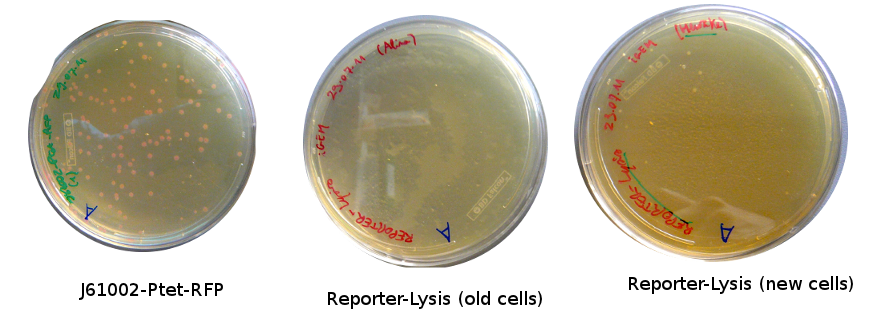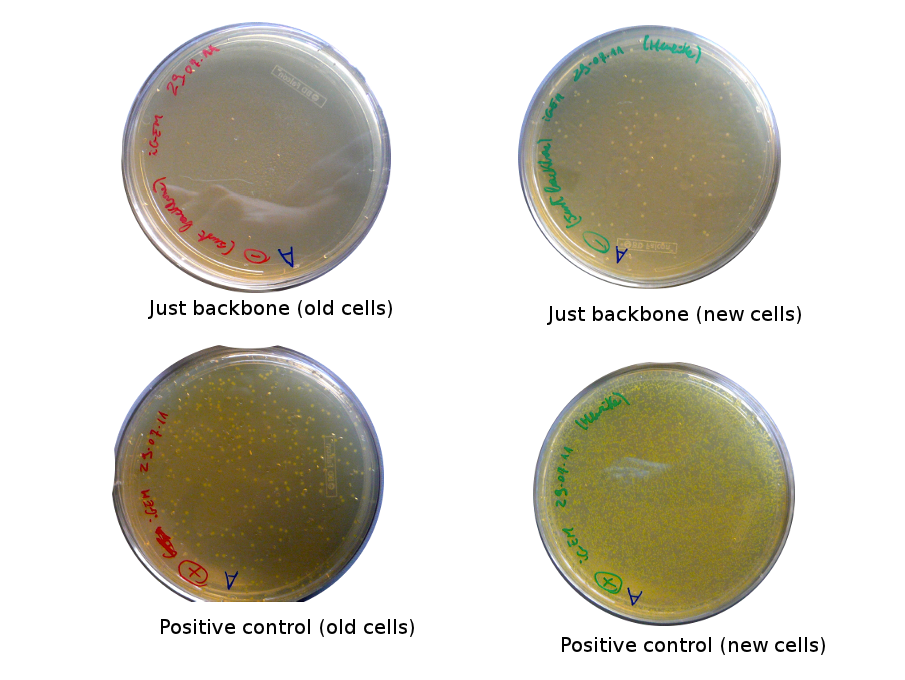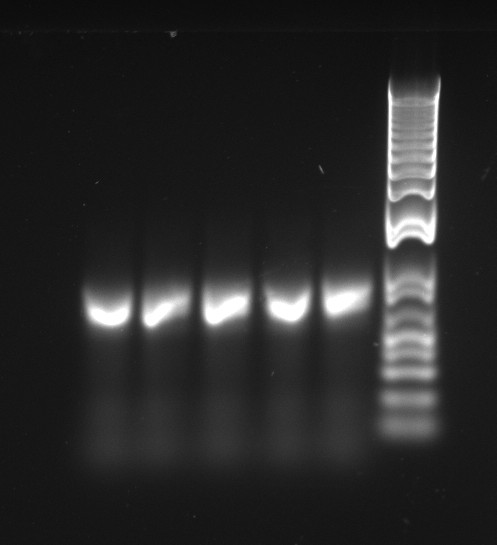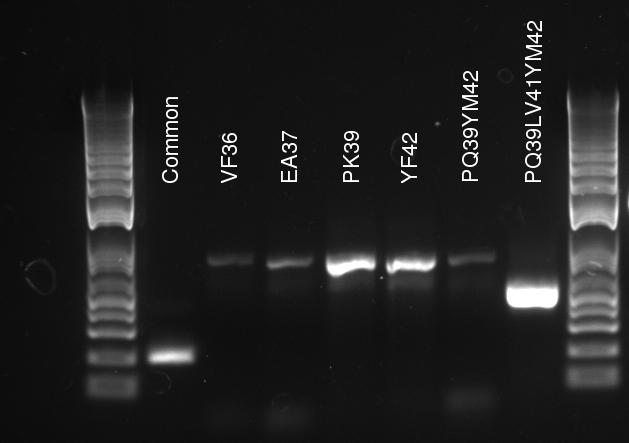Team:EPF-Lausanne/Notebook/August2011
From 2011.igem.org
(→Tuesday, 02 August 2011) |
|||
| Line 10: | Line 10: | ||
The old competents cells seem not to work very well and the Gibson assembly failed since in the plate with only backbone we have a lot of cells therefore the backbone can closes on itself. | The old competents cells seem not to work very well and the Gibson assembly failed since in the plate with only backbone we have a lot of cells therefore the backbone can closes on itself. | ||
| - | |||
| - | |||
[[File:EPFL2011_Pcr_02_08.jpg|thumb|200px|Gradient PCR shows a band of the expected size (725 bp)]] | [[File:EPFL2011_Pcr_02_08.jpg|thumb|200px|Gradient PCR shows a band of the expected size (725 bp)]] | ||
| + | |||
| + | Alessandro make the PCR (gradient PCR in which the annealing temperature increases for each sample) to amplify TetR (putting Pconst in front of it) from Repressilator plasmid to make the Gibson for the Pconst-TetR plasmid. | ||
| + | The result is illustrated on the right. | ||
| + | |||
Since we have already amplified the backbone (pSB3K1) we can make the Gibson assembly to make the Pconst-TetR plasmid. | Since we have already amplified the backbone (pSB3K1) we can make the Gibson assembly to make the Pconst-TetR plasmid. | ||
-------------- | -------------- | ||
| - | [[File:2011-08-02_tetR_mutation_PCR_HiFiPLUS.jpg|thumb| | + | [[File:2011-08-02_tetR_mutation_PCR_HiFiPLUS.jpg|thumb|left|Mutation PCR, using HifiPLUS enzyme and TD PCR. 1kb+ ladder.]] |
The latest mutation PCR yielded large amounts of product. The two bands might be a little worrying, but overall this is a lot better than any of the previous trials, with the old polymerase. The stitch PCR will be ran tomorrow. | The latest mutation PCR yielded large amounts of product. The two bands might be a little worrying, but overall this is a lot better than any of the previous trials, with the old polymerase. The stitch PCR will be ran tomorrow. | ||
Revision as of 16:43, 2 August 2011
Notebook: August 2011
Tuesday, 02 August 2011
Lilia came on Saturday to take the plates and here are the results:
The old competents cells seem not to work very well and the Gibson assembly failed since in the plate with only backbone we have a lot of cells therefore the backbone can closes on itself.
Alessandro make the PCR (gradient PCR in which the annealing temperature increases for each sample) to amplify TetR (putting Pconst in front of it) from Repressilator plasmid to make the Gibson for the Pconst-TetR plasmid. The result is illustrated on the right.
Since we have already amplified the backbone (pSB3K1) we can make the Gibson assembly to make the Pconst-TetR plasmid.
The latest mutation PCR yielded large amounts of product. The two bands might be a little worrying, but overall this is a lot better than any of the previous trials, with the old polymerase. The stitch PCR will be ran tomorrow.
On the side, more reporter and lysis plasmids were assembled (together with a control, containing only the backbone), from the previously made gibson fragments (PCR purified on 2nd August 2011).
 "
"



